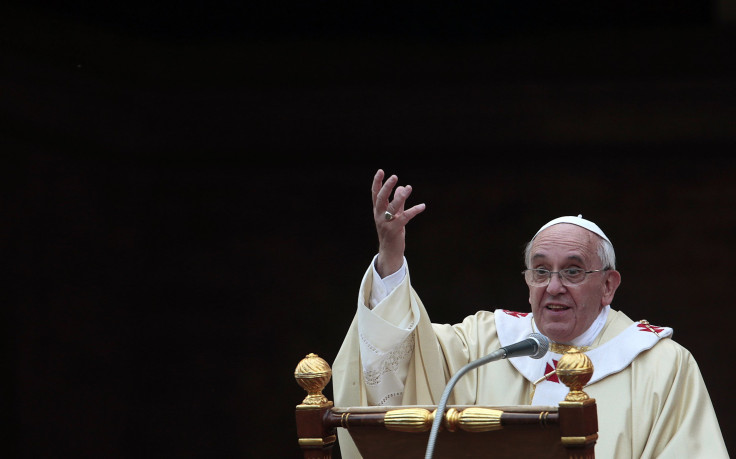
The international left has long viewed the Catholic church as an institution that does little but perpetuate the world's ills. But that may be changing, Jonathan Freedland, columnist with the Guardian, wrote last week in an article which argues that Pope Francis has gone beyond a cosmetic reform of the church to "take on the system that keeps [the poor and weak] that way". According to Freedland, the new pope, who has surprised many with his push to lessen the church's focus on gay marriage and abortion and ramp up the institution's efforts on behalf of the poor and disenfranchised, may be taking the place of Barack Obama as the "pin-up" of the left.
Since being installed as pope in March, the Argentine has sided with anti-fracking activists, called the death of hundreds of African migrants who were trying to reach the Italian island of Lampedusa a "disgrace" and denounced the "slave labor" of hundreds of Bangladeshi workers killed in a building collapse - to name a few examples - and said he was trying to shift the church's focus beyond its "obsession" with "small-minded rules" on gay marriage, contraception and abortion. Freedland calls those statements - which, he notes, have ruffled the feathers of free-marketers and conservatives like Sarah Palin and the Institute of Economic Affairs - "stunning". He also points to the pope's personal response to the letter of a woman who was made pregnant and then abandoned by a married man (Francis told her if priests wouldn't baptize the baby, he'd do it himself) as evidence that he was "replacing brutality with empathy".
In the column, Freedland acknowledges that the pope's actions during the "dirty war" in 1970s Argentina are still unclear. Investigative journalist Horacio Verbitsky, who rose to fame after revealing many of the military junta's worst abuses, has written that the pope - then known as Jorge Mario Bergoglio, and the leader of Argentina's Jesuits - had suggested to junta leaders that certain priests among the Jesuit order were too far to the left to enjoy church protection, which played a part in their eventual kidnapping and torture. The pope denies the claim, saying he lobbied for the priests' release instead. Whatever the case may be, says Freedland, the pope has left behind those years, having "ditched the trappings of high church office, [gone] into the slums and got his hands dirty". He added, "The pope may have no army, no battalions or divisions, but he has a pulpit - and right now he is using it to be the world's loudest and clearest voice against the status quo. You don't have to be a believer to believe in that."
RELATED: Pope Francis Says He 'Won't Judge' Gay Priests
© 2025 Latin Times. All rights reserved. Do not reproduce without permission.




